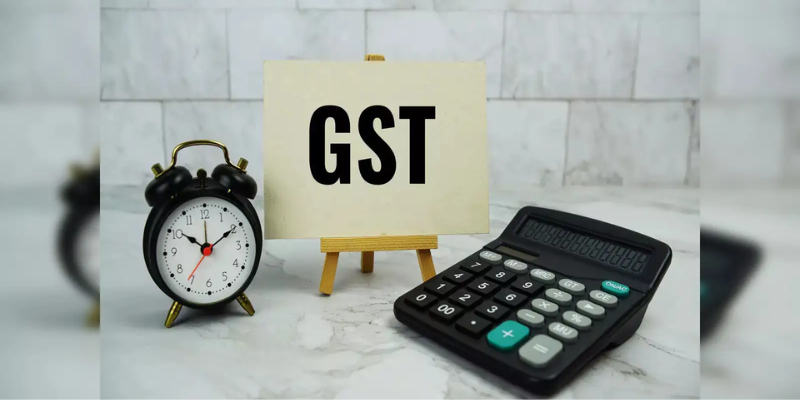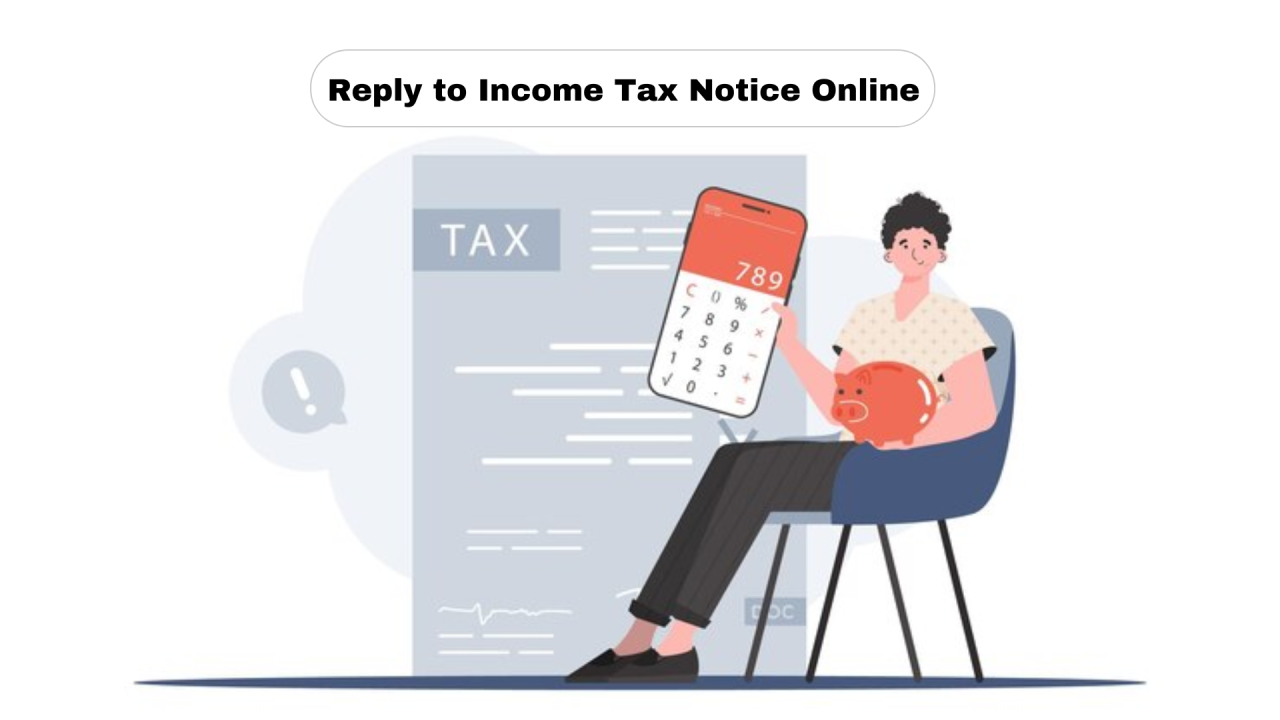What Are the Common Reasons for GST Notices?

Strong 8k brings an ultra-HD IPTV experience to your living room and your pocket.
The Goods and Services Tax (GST) is one of the most important tax reforms in India, designed to streamline the taxation system and promote economic growth. However, GST is a complex tax structure, and many businesses, whether small or large, may sometimes receive notices from the GST department. These notices may seem daunting, but understanding the common reasons behind them can help businesses avoid unnecessary stress and penalties.
In this blog, we will explore the most frequent reasons for receiving a GST notice and how businesses can prevent such issues from arising. Whether you're a seasoned business owner or a new entrepreneur, knowing these reasons can make the entire GST compliance process smoother and more efficient. Enrolling in a GST Course in Chennai can enhance your understanding of GST regulations and help you maintain accurate, compliant financial practices.
1. Failure to File GST Returns on Time
One of the most common reasons for receiving a GST notice is the failure to file GST returns within the prescribed due dates. GST returns, such as GSTR-1, GSTR-3B, and GSTR-9, need to be filed regularly by businesses registered under GST.
Why is it important?
Not filing GST returns on time can lead to penalties and interest charges, and more importantly, the GST authorities may issue a notice to compel compliance. The penalties may include fines, which can accumulate over time, further complicating the situation.
How to avoid it?
To avoid receiving such notices, businesses must ensure timely filing of their returns. Setting reminders for due dates and utilizing accounting software that tracks these dates can help businesses stay compliant. Additionally, if for some reason, you miss a deadline, it's crucial to file the returns as soon as possible to minimize penalties.
2. Discrepancies Between GSTR-1 and GSTR-3B
Another common reason for receiving a GST notice is discrepancies between the outward supplies reported in GSTR-1 and the inward supplies reflected in GSTR-3B. When businesses file GSTR-1 (sales return) and GSTR-3B (summary return), the information should align. If there are significant differences, the GST department might issue a notice for clarification.
Why does it happen?
Discrepancies may arise due to manual errors, incorrect data entry, or a mismatch in the reported sales and purchases. It can also happen if the input tax credit (ITC) claimed does not match the details of the purchases or invoices filed by suppliers.
How to avoid it?
Ensure that all data is accurate before submitting the returns. Businesses should cross-check sales and purchase records, and also ensure that their suppliers have properly filed their GST returns. Regular reconciliation between GSTR-1 and GSTR-3B will help prevent such discrepancies. Accurate record-keeping using accounting software like Tally is essential, and gaining these skills through a Tally Course in Chennai can greatly support effective GST compliance.
3. Claiming Incorrect Input Tax Credit (ITC)
The Input Tax Credit (ITC) allows businesses to offset the tax they have paid on business-related purchases against the GST they owe on their sales. However, claiming incorrect ITC, such as for ineligible goods or services, can trigger a GST notice.
Why does it happen?
This often happens due to lack of proper documentation or misunderstanding of what qualifies for ITC under GST. For example, businesses may claim ITC for purchases that are not directly related to their business activities, or they may not have a valid GST invoice from the supplier.
How to avoid it?
Ensure that all purchases for which ITC is claimed are directly related to the business and that proper invoices are maintained. Businesses should review the GST rules regarding ITC claims and consult professionals if they are uncertain about any items.
4. Non-Compliance with Reverse Charge Mechanism (RCM)
Under certain circumstances, businesses are required to pay GST under the Reverse Charge Mechanism (RCM). This usually uses to specific goods and services, such as those bought from an unregistered supplier or services received from foreign vendors. Failure to comply with RCM obligations can lead to a GST notice.
Why does it happen?
Businesses often overlook their RCM obligations or are unaware of when they are required to pay under this mechanism. As a result, the GST authorities may issue a notice for non-compliance.
How to avoid it?
To prevent RCM-related notices, businesses should keep track of transactions that fall under RCM and ensure that GST is paid accordingly. Regular training on GST compliance or hiring an expert to oversee the RCM process can also be helpful. Understanding the broader benefits of GST to the economy can also encourage businesses to stay compliant, as proper implementation supports national growth and financial transparency.
5. Mismatch Between GSTR-2A and GSTR-3B
GSTR-2A is an auto-generated report showing the details of the input tax credit available to a business based on the purchases made from registered suppliers. A mismatch between the GSTR-2A and GSTR-3B can result in a GST notice.
Why does it happen?
This often occurs when the input tax credit claimed by the taxpayer exceeds the details in the GSTR-2A. It could also happen if suppliers delay or fail to file their returns, leading to discrepancies.
How to avoid it?
Regular reconciliation between GSTR-2A and GSTR-3B is crucial to ensure that the input tax credit is accurate. Businesses should also communicate with their suppliers to ensure timely filing of returns. If there are any discrepancies, they should resolve them promptly.
6. Non-Payment of GST
Non-payment or underpayment of GST is a serious issue that can lead to notices and even legal consequences. The GST department may issue a notice if they find that the tax amount reported does not match the payment made or if there is an intentional attempt to evade taxes.
Why does it happen?
This often occurs due to poor bookkeeping, errors in calculating the GST payable, or a deliberate attempt to reduce tax liabilities. It can also happen when a business faces cash flow problems and delays in remitting the tax amount.
How to avoid it?
To avoid non-payment or underpayment issues, businesses should maintain accurate accounting records and regularly review the GST liabilities. Automated accounting systems can help track the exact tax liabilities, ensuring timely and correct payment. Staying compliant not only helps individual businesses but also contributes to the positive impact of GST on our economy, promoting transparency and improving overall tax collection efficiency.
7. Failure to Update GST Registration Details
If a business changes its business structure, address, or contact details, it is mandatory to update the GST registration details accordingly. Failure to do so can result in a GST notice.
Why does it happen?
Changes in business operations may not always be updated promptly in the GST portal. This could be due to ignorance or oversight.
How to avoid it?
Whenever there are any changes in the business, ensure that the GST registration details are updated in the GST portal. This includes changes in business address, contact information, or legal structure.
GST notices can be an intimidating aspect of the taxation process, but understanding the common reasons behind them can help businesses avoid these pitfalls. Timely filing of returns, accurate data entry, proper documentation, and ensuring compliance with all GST rules are crucial in avoiding notices and penalties. Many professionals enhance their GST knowledge and compliance skills by enrolling in a Training Institute in Chennai that offers practical, up-to-date taxation guidance.
By staying informed and proactive, businesses can manage their GST responsibilities efficiently and avoid unnecessary complications. Whether you're a small business owner or part of a large corporation, keeping track of these common issues will make the compliance process smoother and more manageable.
Note: IndiBlogHub features both user-submitted and editorial content. We do not verify third-party contributions. Read our Disclaimer and Privacy Policyfor details.







